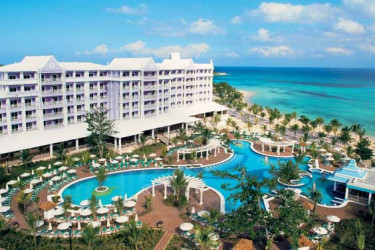(Gleaner) – Hotels import about one-third of their food and fixtures, on which they spend around $70 billion, which equates to opportunities for local business to explore, according to a new tourism-demand study released Tuesday by the Tourism Linkages Council.

Specifically, the study found that the annual business leakage to imports amount to $65.4 billion in the manufacturing sector and between $1.6 billion and $5 billion in the agricultural sector. Jamaica earns about US$2 billion ($240 billion) per year from tourism.
“With proper planning and smart linkages with the local economy, we can reduce leakage and help to retain the economic benefits of tourism. This will result in a more inclusive sector built on partnerships that benefit all Jamaicans,” said Dr Wykeham McNeill, minister of tourism and entertainment, at the Tourism Linkages Council media briefing in New Kingston.
Over the last two years, the linkages project facilitated direct contracts valued at $129.9 million with local suppliers of products and services. In addition, agro-tourism farmers’ markets resulted in contracts between farmers and the hotel sector valued so far at some $35 million.
Council chairman Donovan Perkins argues that the focus should not be on past figures, but on the business linkage opportunities that the demand study has brought to light.
“The local manufacturers didn’t recognise the opportunities available,” said Perkins.
The study was commissioned by the Ministry of Tourism and Entertainment and funded by the Rural Economic Development Initiative managed by the Jamaica Social Investment Fund. The study sought to determine and quantify the existing and potential demand for goods and services and access for the agricultural, manufacturing, and entertainment sectors in Jamaica.
“You can’t block importation, but you can compete away importation …” said Dr Derrick Deslandes, a University of West Indies lecturer, adding that with the tourism study, farmers now know the weekly produce demand for precise hotels.
Chief executive officer of the Private Sector Organisation of Jamaica Dennis Chung described the 60-page study as a landmark as it produced logistics information that could improve linkages.
“When people talk of logistics, this is it. Markets operate on information … this brings it all together,” said Chung.
Brian Pengelley, past president of the Jamaica Manufacturing Association (JMA), welcomed the study along with the linkages programme.
“We are seeing manufacturing grow, and a lot of it is coming from the work that is going on in tourism,” said Pengelley. “I think that Government is doing a lot more than it did before, and we are now seeing the realisation of that work.”
Kingsley Cooper, chairman of modelling and entertainment company Pulse Investments Limited, similarly indicated that the study and work of the council would foster increased linkages in entertainment. The latest project includes the establishment of economic zones across Jamaica to facilitate stage shows. Cooper, Pengelley, Chung, and Deslandes are all members of the Linkages Council.
The tourism sector plays an important role in the Jamaican economy, accounting for 6.4 per cent of gross domestic product in 2012. In 2014, about 7.1 per cent of the workforce was employed in hotels and restaurant industry alone. This represented an increase from the previous year’s rate of 6.8 per cent, according to data from the Planning Institute of Jamaica.
The tourism-demand study was conducted using a combination of approaches that included desk research, a survey of tourism-related businesses, and elite interviews with tourism-sector stakeholders.
The Tourism Linkages Council, established by the minister of tourism in June 2013, comprises public and private-sector partners.





